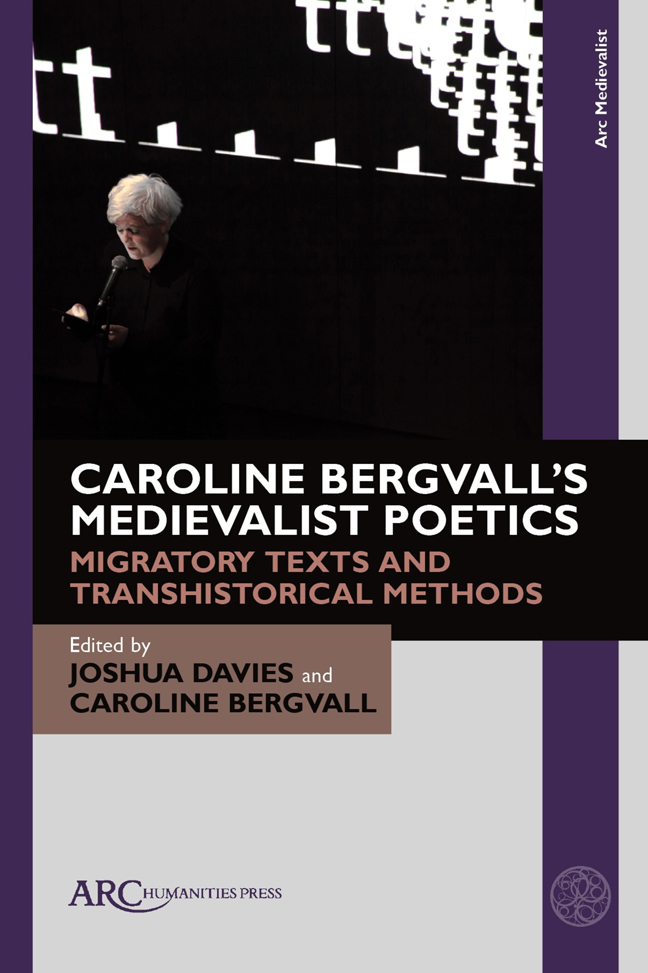Chapter 2 - Meddle English
Published online by Cambridge University Press: 20 February 2024
Summary
MEDDLING IS NOT usually a good thing. There’s something threatening about it, something that suggests unwanted or unwarranted intrusions. To meddle is to com-plicate, to create, or uncover tensions that may not have been visible before. Yet such meddling becomes a necessary praxis in Meddle English, the latest book from writer and performance artist Caroline Bergvall. For Bergvall, meddling is writing. It is a writing that calls language itself into question—writing that takes apart the houses of language and reveals their jumbled insides. It is writing that combs the babble of speech for those hints of word origins, geo graphic markers, class structures, and sonic or syntactic asso-ciations that track how “languages travel as seeded forms of themselves.”
It’s writing that won’t leave language alone.
Meddle English collects a rich sampling of Bergvall’s richly innovative work from the past decade. The book brings together Bergvall’s published essays and poems alongside performance texts (like Goan Atom) that originated in her many text-based multimedia installations. These have been exhibited internationally at the Hammer Museum in Los Angeles, The Museum of Modern Art and Dia Art Foundation in New York, London’s Tate Modern, and the Museum of Contemporary Art in Antwerp, to name just a few locations. While the context of these exhibitions may be lost, Meddle English makes it possible to encounter Bergvall’s writing for its textual qualities alone. The encounter does not dis-appoint.
Even in book-form, Bergvall’s poems make noise. They vibrate on the stutters and seams of plain talking. They bring the art of the collage and the cut-up to bear on the speaking voice, probing speech for “the voices, the languages, the pleasures, the com-plex nexus of cultural and literary motivations with their access markers, their specific narratives” (16). Bergvall, who was born in Germany in 1962 to a French mother and a Norwegian father, thinks of language as something embodied. She also thinks “of the body as always having an accent,” a mark that might be pried open to reveal language as always on the move. The result is a linguistic investigation whose goal is not mastery but dispersal. Bergvall shifts frequently between English, French, Middle English, and the muddles and middles where they collide. She blends languages together in strings of sonic or typographical associations until mere phonemes (“B ba,” “b bo”) sound with the force of words.
- Type
- Chapter
- Information
- Caroline Bergvall's Medievalist PoeticsMigratory Texts and Transhistorical Methods, pp. 21 - 24Publisher: Amsterdam University PressPrint publication year: 2023

